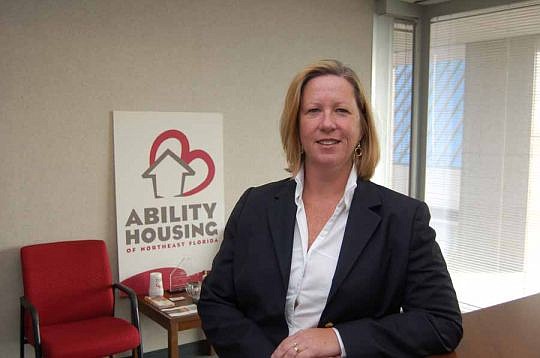
When you determine there’s no choice but to fight City Hall in federal court, you’d better have deep pockets — or attorneys in your corner who are willing and able to help and aren’t concerned about getting paid.
That was the reality for Ability Housing in October 2015 when it became clear that the city was not going to grant permits that would have allowed the nonprofit to transform a 12-unit apartment building in Springfield into permanent supportive housing for homeless veterans with disabilities.
Nearby residents objected to establishing permanent housing for people with disabilities, including mental illness, and attempted to invoke the historic neighborhood’s special zoning overlay adopted by the city to prohibit the project.
For Ability, it wasn’t as much about zoning regulations as it was about civil rights guaranteed by the Fair Housing Act and the Americans with Disabilities Act, but that meant taking the matter out of the Planning and Development Department in the Ed Ball Building and moving it across the street into the Bryan Simpson U.S. Courthouse.
“When the time came to file the suit, we knew we didn’t have the resources,” said Shannon Nazworth, Ability Housing executive director.
That’s where Akerman came in, after helping Ability navigate for more than a year the initial stages of the permitting process on a discounted fee basis, said Tom Ingram, a land use and real estate attorney in the law firm’s Jacksonville office.
When it was determined to file suit in federal court, Akerman stood by the nonprofit.
“We would not have been able to proceed without them,” Nazworth said. “As a nonprofit, we don’t have hundreds of thousands of dollars to take on something like this,”
Ingram — nor the firm — knew when the action was initiated in November 2015 that the case would take 14 months and more than 2,000 pro bono hours of research, discovery, depositions and negotiation before achieving resolution with the city.
Ingram estimates the value of services at “high six figures”
On May 23, City Council approved a settlement that includes the city eliminating discriminatory housing practices, amending the zoning code to comply with federal housing law and laws protecting the rights of disabled people; paying $400,000 to Ability and $25,000 to co-plaintiff Disability Rights Florida to cover a portion of their expenses; and awarding a $1.5 million grant for development of permanent supportive housing following a competitive bid process.
In addition, a consent decree also was reached in a related case with the U.S. Department of Justice which levies a $25,000 civil penalty against the city.
“We tried to cajole and charm city officials and attorneys to get them to come around,” Ingram said of the time leading up to the lawsuit. “After over a year of trying, that’s when the hard decision had to be made by the firm — are we all in on this, or not.”
William Van Nortwick Jr., who retired from the 1st District Court of Appeal and then joined Akerman as partner-in-charge of the firm’s pro bono program, said it was obvious from the start representing the plaintiffs would require extensive donated resources, but the issue was too great to ignore.
“We go through a process and we analyze the case. When we went through that process, up and down the firm there was no resistance. Everybody thought it was the right thing to do for the Jacksonville community,” said Van Nortwick.
“It’s about disabled veterans. That’s as good a client as you could ask for when they are being discriminated against,” he added.
For Ingram, the case had an even broader scope.
“It is corrosive to our society when neighborhoods are vying to have their government ban certain persons with disabilities from their entire neighborhood,” he said.
The work wasn’t over when the terms of the settlement were reached among the litigants. That’s when the process to convince council to sign off on the agreement began.
“There was a lot of raw emotion on the part of some about having another government and an outside attorney telling you what needs to happen,” Ingram said.
He describes the final phase of the case as “a six-month effort to help the City Council understand that the settlement was appropriate” and “public dialogue to help people understand what the Fair Housing Act means and how to mesh city regulations with federal laws.”
Van Nortwick also commented on how the focus evolved from litigation to education when the city realized it didn’t want to pursue the issue all the way to the courtroom.
“The fact that we’d gotten to a point of winning the case didn’t mean anything unless the council understood what the law is, what the case is and why we won the case. I think the educational effort was above and beyond what a litigator normally does,” he said.
“In terms of the cause of what’s good and right and protecting civil rights, this is probably the most significant case of my career,” Ingram said.
Nazworth said Ability’s board of directors hasn’t yet determined a figure, but it plans to remit a “significant portion” of the nonprofit’s cash settlement to help cover some of the law firm’s outside expenses related to the case.
“Akerman didn’t request that, but we feel it’s important,” she said.
(904) 356-2466